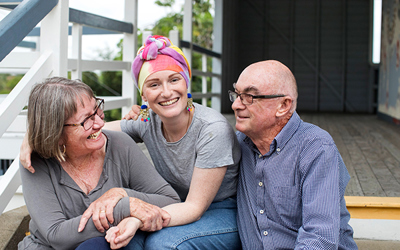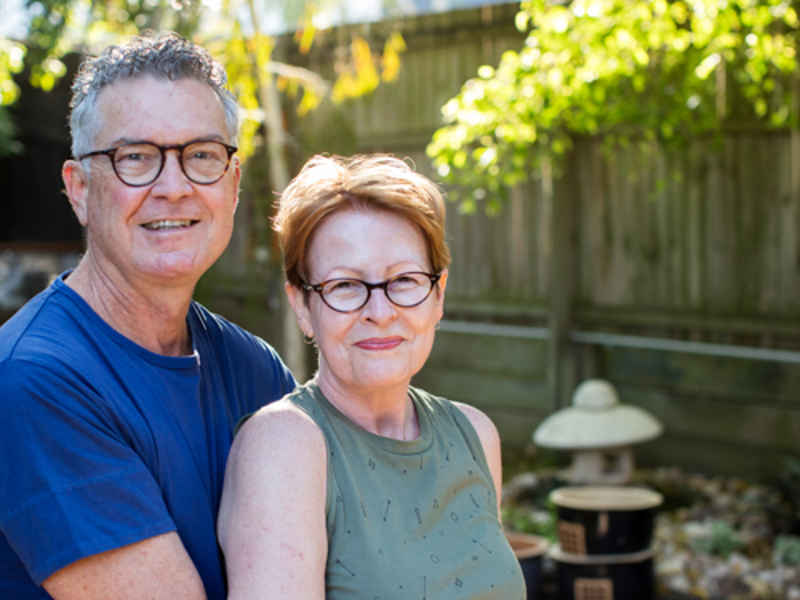
Supporting women through early menopause after cancer treatment
Bowel cancer is used to describe cancer in any part of the large bowel (colon or rectum). It is sometimes referred as colorectal cancer and might also be called colon cancer or rectal cancer, depending on where it starts in the bowel.
Bowel cancer develops from the inner lining of the bowel and usually develops from small growths on the bowel wall called polyps. Colorectal cancer is a broader term that encompasses both colon and rectal cancer and results from the uncontrolled growth of abnormal cells in the large intestine. Bowel cancer is the second most common cancer in both men and women in Australia and is more common in people over the age of 50.
Colon cancer originates in the large intestine – also known as the colon. In many cases, early signs of colon cancer include non-cancerous polyps in the colon.
Rectal cancer develops in the end of the large intestine, known as the rectum. Like cancer found in the large intestine, it can begin with the formation of non-cancerous polyps.
Whilst both bowel cancer and colon cancer originate in the digestive system, their specific location may determine different treatment options.
The type of treatment you receive will depend on a number of different considerations, including what type of cancer you have, the cancer’s stage, your overall health and your treatment preferences.

Be informed, feel empowered. Our free guide will help you make decisions about your, or your loved ones, care.

Surgery is the main treatment for early and advanced colon cancer. If the cancer has spread to the lymph nodes, you may have chemotherapy after surgery, which is called adjuvant chemotherapy.
Surgery is the main treatment for early rectal cancer. If the cancer has spread beyond the rectal wall and/or into nearby lymph nodes before surgery, you will require chemotherapy or radiation therapy combined with chemotherapy. After surgery you may require further chemotherapy or radiation therapy.
Sometimes, colon and rectal cancers require chemotherapy and radiation prior to surgery to reduce the size of the tumour. Smaller cancers are easier to remove completely, and the surgery is less complicated. Plus, these treatments kill tiny cancers that might have spread which reduces the chance of the cancer coming back.
When bowel cancer has spread outside the bowel to other parts of the body such as the liver, lung, or lining of the abdomen and pelvis, this is known as advanced bowel cancer. To control the cancer, slow its growth and manage symptoms such as pain, a combination of different treatments may be recommended such as chemotherapy, targeted therapy, immunotherapy, radiation therapy and surgery.
90% of bowel cancers can be successfully treated, which is why screening and early detection is so important.
The content on the Icon Oncology website is for informational purposes only and should not be considered medical advice. It is not a substitute for consultation with a qualified medical practitioner. For personalised medical guidance, please consult with your GP or another qualified healthcare provider.

Discover our comprehensive collection of content designed to inform, support, and guide you through every aspect of cancer care. From the latest news and updates to personal patient experiences and educational resources, these materials provide valuable insights to help you better understand cancer, treatment options, and the journey ahead.